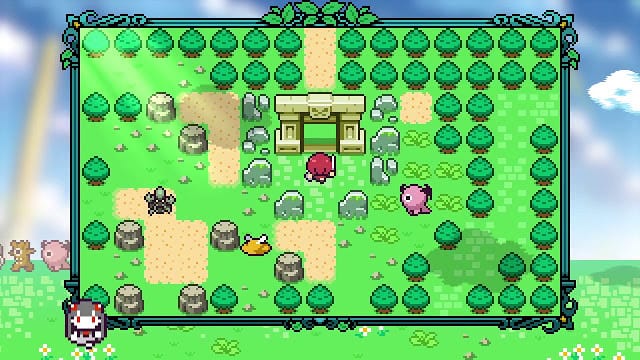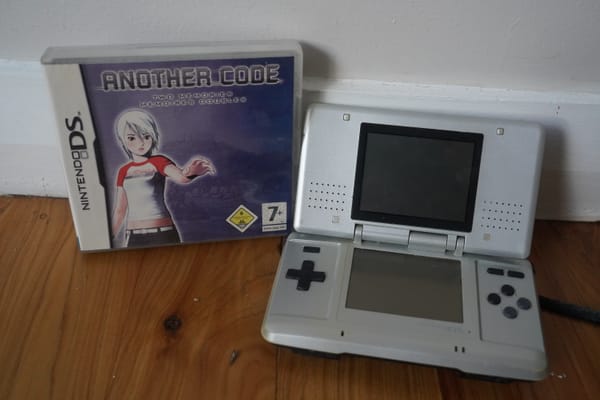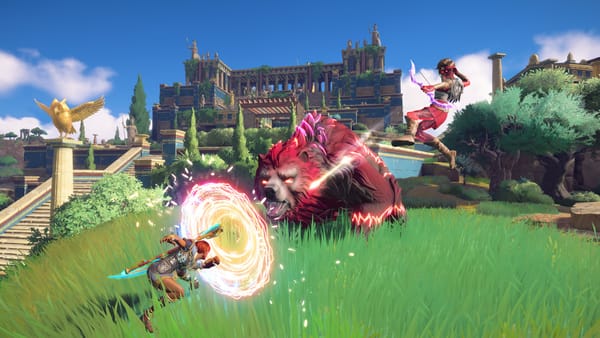External Review: Fairune Collection

Review for and originally posted on DigitallyDownloaded.net.
Having released on the Nintendo 3DS eShop and mobile platforms, the Fairune series didn’t exactly wow players the first time around. In his review of the original, Matt criticised the simplistic linear experience, and we didn't even look at the second. But the second is worthwhile, and this collection of both games together on the Nintendo Switch (plus some extras) is certainly good value.
I also played the original Fairune on the 3DS, and despite the titles rough edges I found the overall game to be inspiring. While the critics of the title devoured it for being far, far too basic, I actually found the gameplay structure to be marvellous. Even with the concept at its rudimentary form in the original Fairune, the method of levelling up stunned me as an idea that should be utilized in more games.
The Fairune Collection offers players a chance to experience not just the original two games but two additional unreleased titles in the franchise. On players opening the collection, the fourth title will be locked out to them, a reward for completing the main Fairune titles. The third game presented to players is Fairune Origins, which is, of course, the back story. Here the mechanics have been stripped down even further than it is in the original Fairune, and the world is more focused around solving puzzles. Thankfully this is a bite-sized game, and a warm up for Fairune proper, else the overly simplistic nature of it would become really dull. For Fairune fans, the plot centred around finding the fairies within the Land of Fairune so they can seal in the Demon King before the events of Fairune is a nice extra, but as a game in itself, it doesn’t unfortunately leave a mark as a distinct memorable experience in the collection, instead feeling more like the bonus features in a DVD release of a movie.
The entire Fairune series uses much the same gameplay structure. Players progress by walking their character over monsters, with that action then constituting a battle. Weaker monsters will give the player no experience but will be defeated with no damage to the player, while higher level monsters will take multiple hits to defeat, and deal out plenty of damage back to the player. See? It's simple, but a hugely effective way of directing players through the game by making sure that wherever they're up to, the monsters are of a similar level. As the player levels up, areas previously inaccessible to them (because the enemies were effectively undefeatable) suddenly become manageable, and the player can push on through the game. This is the crux of Fairune; a system which by its design can prevent exploration into areas and guide the player into the linear narrative. The world is in theory open, but the game focuses heavily on pushing players from one section of the map to the next on sections of the map.
Players new to Fairune will find the Fairune collection consistent in providing quick experiences with a simplistic generic RPG plot. Each Fairune title can be completed within a solid afternoon's play. The game rewards players who speed through the titles with achievements for completing the game at certain intervals around the two-hour mark. These achievements lie in the realm of achievable on the first playthrough which will disappoint some, as there isn't much of an incentive to replay the game either. Unlike Kamiko, a more recent title from developer Skipmore, which features three playstyles for the hack and slash, Fairune is static. That being said, Fairune 2 does offer a more meaty experience with some replay value, and the unique arcade experience of Fairune Blast - the reward for completing the other three titles, is really enjoyable stuff.
Fairune 2 is what should have been the baseline for this series. The title has a more throughout approach with more RPG elements than the other games in the collection. While the foundations are the same as in its predecessors, the game contains basically more of everything. In this game, monsters also drop coins upon defeat, which can be traded in for a higher multiplier on skills. It's a simple addition, but it gives players more to think about as they play, and a greater sense that they're crafting their own characters on their journey. There are also multiple maps that let players explore a greater range of environments than the mostly lush fields of the original Fairune. Those environments are generic fantasy environments, to be sure, but there's some nostalgia wrapped up in there for fantasy game veterans.
As the final experience in the collection, Fairune Blast changes things up completely by offering a scrolling shmup arcade experience. It's by no means a classic of the genre, but gunning for those high scores will be an entertaining diversion for the Fairune faithful.
In the end the problem with the Fairune Collection comes from the fact the series is a short lived one and yet it still took its time to find its stride. The most recent game, Fairune 2, should have been the foundation and the first title, but as it is, it's the only one that feels complete, with the rest of this collection being more akin to proof of concepts or tech demos.





